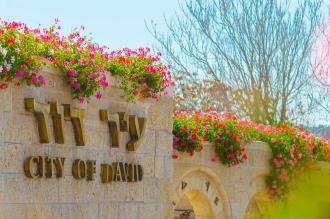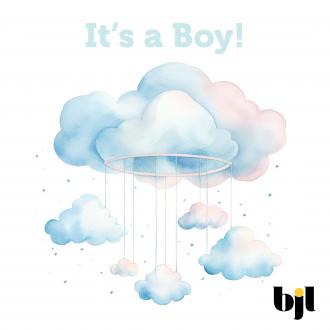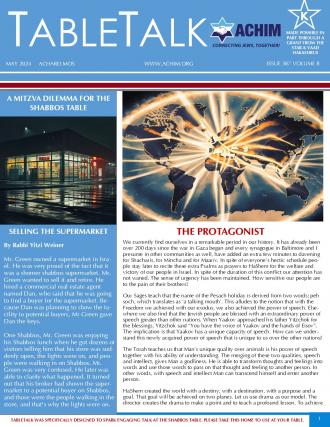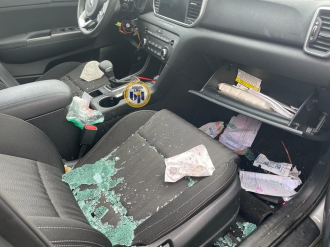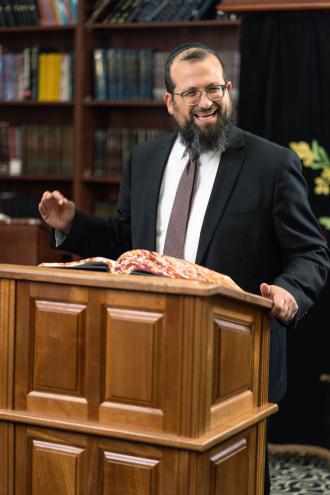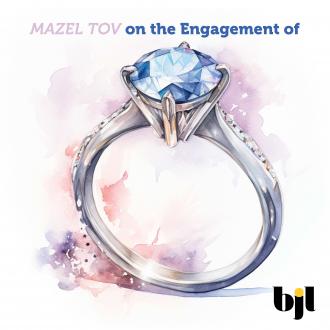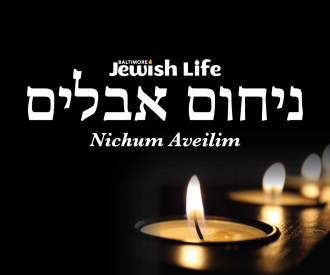This article is adapted from my upcoming sefer, “What Can I Say... Today?” All halachos mentioned herein are complex and part of a larger framework. The purpose of the article is to raise awareness of these essential halachos. Hence, one should not draw any practical conclusions without first consulting a Rav.
In the previous article we discussed the halachos of the conditions for seeking negative information when researching a potential business partner. In the present article, we will complete our discussion of the topic and summarize our conclusions.
After the Partnership Has Begun
Our discussion in the previous article applies to a case in which the partnership has not yet been formalized. However, after the partnership has become halachically binding, another consideration exists before one may relate the negative information. As mentioned above, one of the necessary conditions for saying loshon hora for a to’eles is that the harm resulting from the information is not more severe than that which would have occurred in a beis din. Before one is committed to a partnership, he may decide not to enter into the partnership even if he does not have sufficient grounds to prove the incompatibility of the partnership. However, after a commitment has been made in a halachically valid fashion, one may not renege on the commitment. In such a case, even if someone were to come to beis din and testify that one of the partners is not keeping his end of the deal or the like, his testimony would not be accepted. This is because the beis din will only accept two valid witnesses.
Therefore, after the partnership has already been forged, one must also consider whether the listener would renege on his commitment based on the information. If he would do so, the information may not be related by one person alone; one may only relate the information to the other party if he is accompanied by another valid witness, thus fulfilling the requirements that beis din would have for accepting the information. Indeed, all of the requirements pertaining to witnesses will be necessary. For instance, the two witnesses may not be relatives of each other or of one of the parties involved. Similarly, the witnesses would both need to know the information firsthand since only such testimony in acceptable in beis din.
Even with all of these prerequisites, it is still highly questionable whether it is permitted to relate the information. Therefore, a Rav should be consulted.
If No Illegal Action Will Be Taken
The aforementioned restriction assumes that the listener will take matters into his own hands and renege on his commitment based on the information. However, if he is an upright individual who will not take any legal action without consulting a Rav, the halachah is different. In this case, even one person may tell him the information even after a halachic commitment was forged; it is not necessary to find a second person who also knows the information. The other requirements of valid witnesses are also not required. In this situation, no undue harm will come from relating the information since the listener will not renege without sufficient halachic basis. Indeed, in some instances, the information should be relayed under the conditions of to’eles so that the listener can be more cautious around his partner and protect himself from any future harm.
Summary of Researching a Business Partner
- One may research a potential partner under the dispensation of to’eles.
- The guidelines for the questioner to follow are:
- He may not ask a competitor or someone who otherwise dislikes the subject.
- He must explain that he is asking the questions for a to’eles.
- He must only be choshesh for the information he hears; he may not believe it.
- The most prominent conditions for the respondent to follow are:
- He must make sure that he did not misinterpret the facts.
- He may not exaggerate.
- He must intend to convey the information for a to’eles.
- He may only convey the information if a to’eles will actually come from this.
- He must determine that there is no other way of accomplishing the to’eles.
- If he does not know the information firsthand, he should ask a Rav before responding.
- If the partnership has already been forged in a halachically binding manner, the guidelines for answering questions are more stringent:
- If the questioner will not take any legal action to dissolve the partnership without instruction from a beis din, the halachos of answering are as delineated above.
- If the questioner is suspect of acting on his own, it is forbidden to respond to his questions without consulting a Rav.


